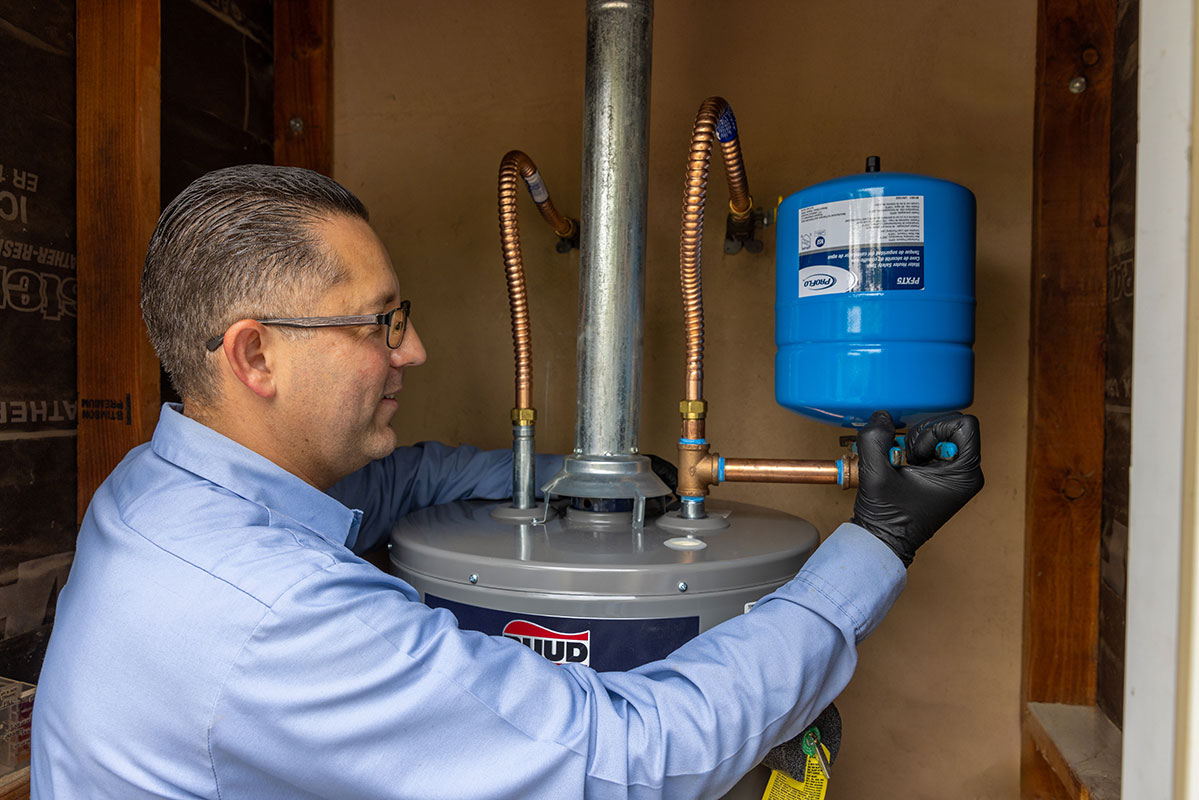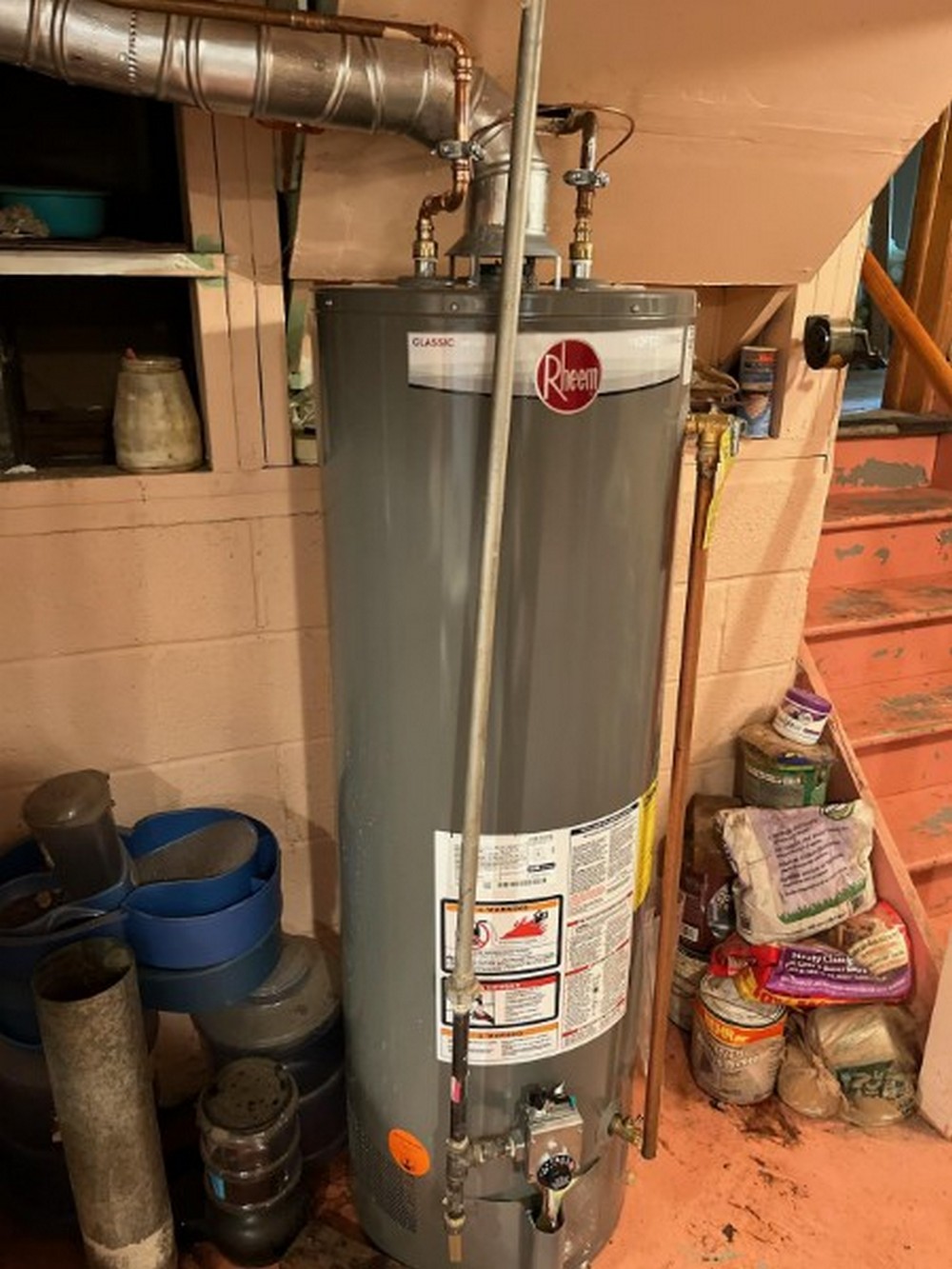Certified Gas Leak Repair for Your Safety and Security
Certified Gas Leak Repair for Your Safety and Security
Blog Article
Total Guide to Water Heating UnitInstallation and Substitute
Recognizing the complexities of water heater installation and replacement is vital for property owners looking for to make certain efficiency and integrity in their hot water supply. From selecting the proper kind and dimension to implementing a smooth setup process, numerous variables need to be considered to avoid common mistakes.
Sorts Of Hot Water Heater
When taking into consideration water heating unit setup and replacement, it is necessary to recognize the different kinds of water heating units readily available in the market. One of the most typical kinds include container hot water heater, tankless water heating units, warm pump hot water heater, and solar water heating units.
Tank water heaters are traditional systems that store a certain quantity of hot water, making them readily available when needed. They are usually cheaper upfront yet might incur higher energy prices with time as a result of warmth loss. In comparison, tankless water heating systems supply warm water as needed, removing the need for storage space. They are energy effective and can save room, but their first prices are commonly greater.
Heatpump water heating units utilize electricity to move heat from the air or ground to warmth water, offering substantial power financial savings however calling for even more area and details installation conditions. Solar water heaters harness solar power to warmth water, giving an environmentally friendly alternative with prospective long-lasting expense financial savings, although they typically need a backup system for gloomy days.
Understanding these options guarantees educated decisions regarding installation and replacement, providing to certain demands and preferences.
Selecting the Right Size
Choosing the suitable size for a hot water heater is critical to ensure optimal efficiency and efficiency. A device that is too small will certainly have a hard time to fulfill house needs, leading to irregular hot water accessibility and increased power intake. Alternatively, an extra-large hot water heater can cause unnecessary energy waste and greater energy bills.
To identify the appropriate dimension, take into consideration the family's optimal warm water usage. This can be calculated based upon the variety of owners and their normal warm water requirements. A household of four might call for a water heating system with an ability of 50 to 80 gallons, depending on the usage patterns, such as synchronised showers and laundry.
In addition, examine the recuperation price, which determines how quickly a heating unit can restore hot water after it has actually been used. For tankless designs, emphasis on the circulation rate, determined in gallons per min (GPM), to ensure it satisfies the household's simultaneous demand.

Installation Process Introduction

Following, the old unit must be detached and eliminated, making sure to adhere to regional codes and policies relating to disposal. Once the old device is out, the brand-new water heater can be positioned in place. This action entails connecting the supply of water lines, making certain that all fittings are protected and leak-free.
After establishing water links, it's important to connect the power supply, whether electric or gas, adhering to the manufacturer's instructions diligently. As soon as all links are made, the system ought to be full of water, and the visit this website power can be turned back on. It's crucial to inspect for leaks and ensure the water heating system is operating appropriately prior to finishing the installation process.
Usual Setup Mistakes
:max_bytes(150000):strip_icc()/replacing-a-water-heater-1824920-hero-20747e5013dd49ef8e7bd63c2bf5c386.jpg)
Another regular error is disregarding to follow local codes and regulations. Falling short to abide by these requirements can not only bring about safety risks however might likewise result in costly penalties or the demand for expensive reinstallation. In addition, inappropriate venting is a vital issue. Inadequate air flow can cause unsafe gas accumulation, see here now posturing severe health threats.
Wrong pipes connections are additionally a widespread blunder. Stopping working to safeguard links or using the incorrect kind of fittings can cause leakages and water damages. Moreover, forgeting the significance of a proper drain frying pan can lead to substantial water damage if leaks do happen. Lastly, poor insulation of pipes can result in heat loss, lowering effectiveness. By staying clear of these usual installment errors, house owners can ensure their hot water heater runs safely and effectively, maximizing efficiency and longevity.
Upkeep Tips for Longevity
Appropriate upkeep of a water heating unit is vital for its long life and optimum performance. Normal examinations and maintenance can protect against pricey fixings and prolong the appliance's lifespan. Begin by checking the temperature level setup; it ought to typically be established between 120 ° F and 140 ° F for optimal energy effectiveness and security.
Every 6 months, flush the container to get rid of sediment build-up, which can hinder home heating performance and trigger deterioration. To do this, switch off the heating unit, connect a pipe to the drainpipe valve, and let the water run till it is clear.
Anode rods ought to be evaluated each year and replaced when they are corroded. These rods aid protect against tank corrosion by attracting harsh aspects in the water.
Furthermore, examine the stress safety valve routinely to guarantee it is working appropriately. This valve is vital for stopping too much pressure buildup within the container.
Finally, consider arranging a specialist maintenance check every few years for thorough assessments and servicing. By sticking to these maintenance pointers, house owners can substantially boost the performance, safety and security, and life expectancy of their water heaters, making sure trustworthy warm water for years to come.
Verdict
Finally, correct installation and maintenance of water heating systems are crucial for making sure performance and longevity (plumber Denton). Selecting the ideal kind and size, adhering to setup standards, and staying clear of usual mistakes dramatically add to optimum efficiency. Routine upkeep checks and expert maintenance aid sustain capability and stop pricey repair services. By understanding these essential elements, homeowners can attain a trustworthy hot water supply while minimizing possible issues connected to water heating unit procedure.
Understanding the details of water heating system setup and replacement is important for homeowners looking for to guarantee effectiveness and integrity in their warm water supply.Tank water heating units are conventional systems that my website save a certain quantity of warm water, making them easily available when needed. In comparison, tankless water heating units supply warm water on demand, eliminating the demand for storage space. Selecting a water heating system that is either as well tiny or too huge can lead to inadequacies, resulting in inadequate warm water supply or excessive power usage.
By understanding these crucial facets, homeowners can attain a reliable warm water supply while minimizing possible issues connected to water heating system procedure. drain cleaning.
Report this page